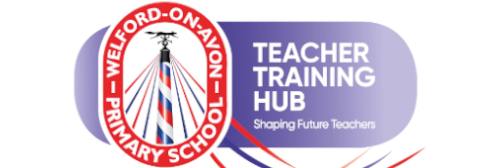Music

Intent
Our vision for music is that we provide every child with high quality music experiences which engage and inspire them. We provide opportunities for all children to create, play, perform and enjoy music and to appreciate a variety of music styles. We aim for every child to leave Welford on Avon Primary School with a range of musical skills, knowledge and an understanding and love of music which they can carry with them for the rest of their lives.
Implementation
At Welford on Avon Primary School we encourage children to participate in a variety of musical experiences through which we aim to build up the confidence of all children. Singing is an integral part of our school life and our teaching focuses on developing the children's ability to sing in tune, developing their expression and ability to listen to others.
Pupils’ understanding of music will be developed through activities which bring together the requirements of performing, composing, listening and appraising. Children are taught to make music together with tuned and un-tuned instruments and to compose pieces. They are also taught to sing and play in time controlling the sound and pace. They are taught different ways to represent sounds graphically and symbolically.
Impact
Children will:
- enjoy and appreciate a wide variety of musical styles;
- explore how sounds are made, and how music is produced by a variety of instruments;
- develop imagination and creativity;
- build a sense of pulse and rhythm;
- understand a range of musical vocabulary;
- develop the interrelated skills of composition, improvisation, performance and appreciation;
- enjoy a wide range of songs and sing in tune;
- develop positive attitudes and to experience success and satisfaction in music.

Teaching and Learning Music in the Early Years
We teach music in Nursery and Reception classes as an integral part of the topic work covered during the year. As part of the Early Years Foundation Stage of the National Curriculum, we relate the musical aspects of the children’s work to the objectives set out in the Early Learning Goals (ELGs). Music contributes to a child’s personal and social development. Counting songs foster a child’s mathematical ability, and songs from different cultures increase a child’s knowledge and understanding of the world. Nursery and Reception classes also have access to the Charanga Music Scheme.
Key Stage One and Two Curriculum
Our school uses the Charanga scheme as the basis for its curriculum planning. This scheme has an integrated, practical, exploratory and child led approach to musical learning.
The learning within this scheme is based on:
- Listening and Appraising,
- Musical Activities (including Creating and Exploring)
- Singing and Performing.
While there are opportunities for children of all abilities to develop their skills and knowledge in each unit, the progression planned into the scheme of work means that the children are increasingly challenged as they move through the school. All musical learning in the scheme is based around the Interrelated Dimensions of Music; pulse, rhythm, pitch, tempo, dynamics, timbre, texture, structure and notation.
Additional music teaching
In order to enrich the musical experiences of all our children, Welford on Avon Primary school currently welcomes a range of external providers who teach pupils to play a variety of instruments from Year 1, such as the violin, cello, flute, piano and clarinet. Parents are requested to purchase or hire the instrument and pay the additional music lesson fees on a weekly or termly basis.
There is also a choir which children are encouraged to join.
Musical events
Children take part in singing practice, assemblies and have opportunities to perform in public, for example groups have children have been invited to sing in the local community at a variety of events. Children are also given the opportunity to listen to a range of music at the beginning and end of our assemblies. At Christmas time, the whole school takes part in a musical performance of some kind. At other times of the year e.g. Harvest, Easter and class assemblies, year groups or the whole school get together to provide appropriate musical entertainment. There is a string, orchestra and choir concert which takes place termly for the whole school.
Assessment
Children demonstrate their ability in music in a variety of different ways. Teachers will assess children’s work in music by making informal judgements as they observe them during lessons. Video recordings can be made of live musical performances for the children to use as self-assessment. On completion of a piece of work, the teacher will assess the work and give oral feedback. Older and more able pupils are encouraged to make judgements about how they can improve their own work.
Equal opportunities
Activities should be carefully planned by the class teacher and be differentiated where appropriate for children with SEN and equally the more able pupils. All resources/materials have been reviewed with equal opportunities in mind, e.g. race, gender, ethnicity. Learning experiences in music will be available to every child, regardless of race, gender, class or ability. Pupils will be encouraged to value social and cultural diversity through musical experiences. They will listen to, and participate in, a variety of experiences in a positive and constructive role.
Inclusion
We recognise that in all classes, children have a wide range of musical ability, and so we seek to provide suitable learning opportunities for all children by matching the challenge of the task to the ability of the child. We achieve this in a variety of ways:
- setting tasks which are open-ended and can have a variety of responses;
- setting tasks of increasing difficulty;
- grouping children by ability and setting different tasks for each group;
- grouping children in mixed ability groups;
- providing resources of different complexity, depending on the ability of the child;
- using classroom assistants to support the work of individuals or groups of children.

